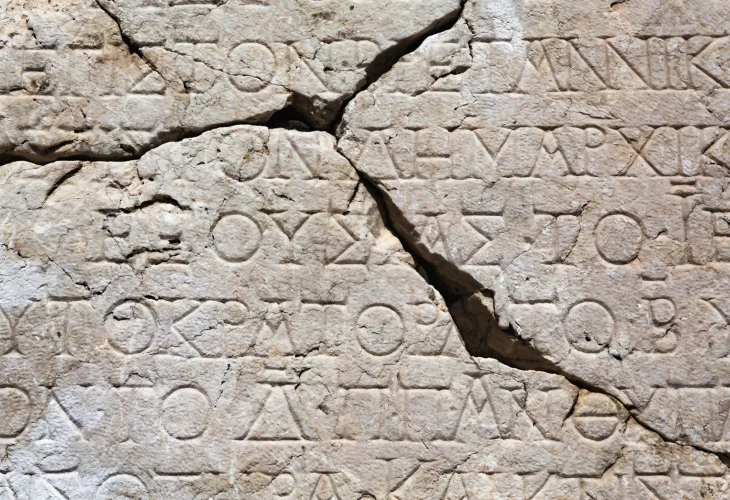Unraveling Secrets: What Ancient Egyptian Texts Reveal About Abraham's Descendants
Thanks to an ancient Egyptian custom, we can learn a lot about the peoples of the Middle East at that time. Astonishingly, among the names are those of three families that seemed to have greatly angered the Egyptians, meriting a string of curses... These families are: Tavach, Tachas, and Maacah.
 (Photo: shutterstock)
(Photo: shutterstock)In 1940, French Egyptologist Georges Forner excavated the Egyptian burial city of Saqqara, located near modern-day Cairo. Thousands of years ago, this city served as a burial site for the pharaohs who ruled from ancient Memphis. Seventeen ancient Egyptian pyramids have been uncovered in Saqqara so far. The latest was discovered in 2008, and excavations continue.
Forner unearthed a collection of pottery shards discarded in a trash heap, densely inscribed. Deciphering the script revealed lists of kings, tribes, and enemy groups of Egypt, accompanied by intense curses. These shards, known as "Execration Texts," are nearly four thousand years old, from the era of Abraham.
Thanks to this Egyptian custom, we can learn about the peoples living in the Middle East at that time. Amazingly, among the names are three families that were evidently highly detested by the Egyptians, resulting in a series of curses dedicated to them. These families are: Tavach, Tachas, and Maacah.
The Torah tells us they were the nephews of Abraham. When Abraham was informed that Betuel, son of Nahor, had borne Rebecca, he was also told that Nahor's concubine, Reumah, bore Tavach, Tachas, and Maacah. It's very likely these sons became tribal leaders, adhering to the faith of the Semites, and therefore clashing with the Egyptians, who were steeped in idolatry. The name Gehah is also identified in archaeological texts of that time.
The Torah also mentions the sons of Ishmael: Adbeel, Misha, Tema, Sheba, and Ephah. These names appear in an inscription by an Assyrian king who conquered these tribes. Evidently, each son became a renowned tribal leader, maintaining their territories in Arabia until the Assyrian kings eventually conquered them.
The sons of Keturah, also mentioned in the Torah—Sheba, Didan, Midian, Ephah, Yisbaq, and Shuah—are not unfamiliar in the research world. Inscriptions found in Arabia mention them, with individuals claiming lineage from tribes like Didan and Yisbaq.
A curious mystery concerns the fate of the sons of the concubines. Abraham gave them gifts and sent them to "the land of the east," as the Torah narrates. Where is this "land of the east"? An ancient Egyptian document, the Tale of Sanehat, mentions this place but doesn't specify its location.
Some theories propose this "land of the east" is India, the edge of the east. This would explain the Brahmin belief system as descended from Abraham. In Hindu myth, the wife of a Brahmin is Saravasti, which could be a distortion of Sarah. The Brahmin belief system is less idolatrous than others of ancient times, containing a more abstract layer. Additionally, the sages say the gifts Abraham gave the sons of concubines were names of defilement, fitting with India's thriving industry of magic and mysticism.
It's also noteworthy that according to the Brahmin tradition, the etrog is a sacred fruit, revered as a paradise fruit linked to knowledge and wisdom, akin to the tradition cited by Rabbi Abba that the fruit of the Tree of Knowledge was the etrog.

